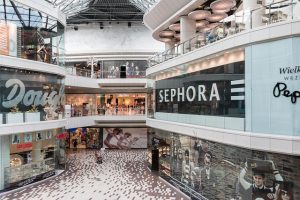By John Varoli
With the COVID-19 virus here to stay, and tensions between the U.S. and China continuing to increase, many companies are struggling to secure their supply chain. Gone are the days of trying to optimize that supply chain; now, it’s mostly about survival mode.
In our vulnerable and highly volatile world, what does a company need to do in order to guarantee supply chain security and reliability? While trying to find answers to this question, I though it would be interesting to see what experts wrote about this issue a year ago when the global economy seemed to face smooth sailing.
A year ago, the robust global economy felt itself invincible, and we were certain that new technologies would solve any problems. In mid 2019 most articles were about optimizing the supply chain. In May 2019, Shelby Klingerman listed ways to “help supply chains transform in a way that enables them to flex and respond as new technologies emerge and customer expectations change.”
She listed six points to guarantee a secure and reliable supply chain:
- Utilize powerful Cloud-based applications
- Integrate emerging technologies
- Provide for easily accessible information
- Establish scalability and security
- Set up easy-to-maintain and update systems
- And have an understanding partner
(Source: https://questoraclecommunity.org/learn/blogs/6-ways-to-future-proof-your-supply-chain/)
A year ago, however, some experts also saw potential danger on the horizon. When advising readers about the supply chain, Steven Bowen, writing in Forbes, eerily predicted that many companies were not ready for an unexpected and devastating shock to their supply chain.
“Surprisingly few companies understand the importance of the supply chain, and few have a formal strategy in place for managing global supply chain risk in the years ahead.”
Fast forward to today and our COVID-plagued world that also has to grapple with U.S.-Chinese tensions. Every company now realizes the importance of supply chain security and reliability. Susan Meyer writing in Big Commerce, has come up with seven tactics to deal with supply chain disruptions.
They are:
- Create a supply chain emergency plan.
- Build up inventory.
- Conduct a supply chain vulnerability audit.
- Identify backup suppliers.
- Diversify supply base.
- Partner with a logistics expert.
- Adopt risk evaluation tools.
Ms Meyer’s view of this matter is essentially grim and almost desperate, with a focus on survival mode that establishes geographic and supply source diversification as the lynchpin in any strategy: “By setting up your supply chain so that you have suppliers in different places you can ensure that you’ll always be able to get at least some goods amidst any disruption… When creating an emergency plan you should think about all the different ways you can move goods around. Create a stockpile of essential supplies that can see your business through several months of disruption.”
Innovative technology, of course, still has an important role to play. Jeff Stiles lists his five strategies for a reliable supply chain in turbulent times: “Emerging technologies and methods will underpin the new era of resiliency… New technologies such as blockchain can connect people across supply networks, locking in the trust companies require to negotiate risk-laden trading environments.”
Mr Stiles adds that companies should try to understand how to utilize Artificial Intelligence and machine learning in order to be prepared for unexpected events, or to react both quickly and effectively to these ‘black swan’ events, which are inevitable.
(Source: https://blogs.oracle.com/scm/5-strategies-for-better-supply-chain-management-in-the-current-economy)
As it becomes increasingly clear that the global economy will not return to pre-COVID vitality for at least a year or two, companies will have to put supply chain security at the forefront of their business strategy. Built-in flexibility and an ability to adapt to unexpected challenges will be crucial. Of course, this should have been obvious before the pandemic, but one thing is for sure, this generation will never forget the hard lesson it has learned in the past five months.
About the author
 John Varoli has 30 years experience as a media professional, including 15 years as a journalist for major publications such as the New York Times, Bloomberg News, and Reuters TV. Mr. Varoli left journalism in 2011 and founded his own media consulting company that works with a wide range of clients: philanthropists, western governments, financial institutions and corporations. He is also interested in technology, e-commerce and social change. and occasionally writes about these topics.
John Varoli has 30 years experience as a media professional, including 15 years as a journalist for major publications such as the New York Times, Bloomberg News, and Reuters TV. Mr. Varoli left journalism in 2011 and founded his own media consulting company that works with a wide range of clients: philanthropists, western governments, financial institutions and corporations. He is also interested in technology, e-commerce and social change. and occasionally writes about these topics.
Related Articles

The Rise of Digital Experience Platforms (DXPs) in Software Development
Software development is evolving, as Digital Experience Platforms enable the delivery of a personalised digital cross-channel experience. A DXP delivers integrated content, Artificial Intelligence, and low-code rapid application development tools. It streamlines the work of developers as well as marketers.

7 Employee Benefits That Can Help Your Business Increase Staff Retention
With so many businesses vying for the attention of skilled job candidates, it’s becoming more important to look for ways to make your offerings more appealing by adding unique perks that not every employer does.

How Retailers Can Prepare for the Summer 2025 Shift
Rather than focusing on isolated touchpoints or departmental KPIs, journey management provides a way to understand where the most critical pain points lie and how to resolve them systematically across the business.

Retailers Are Drowning in Data – Journey Management Could Be the Lifeline
Rather than focusing on isolated touchpoints or departmental KPIs, journey management provides a way to understand where the most critical pain points lie and how to resolve them systematically across the business.



 for the latest news and job opportunities in retail tech
for the latest news and job opportunities in retail tech 